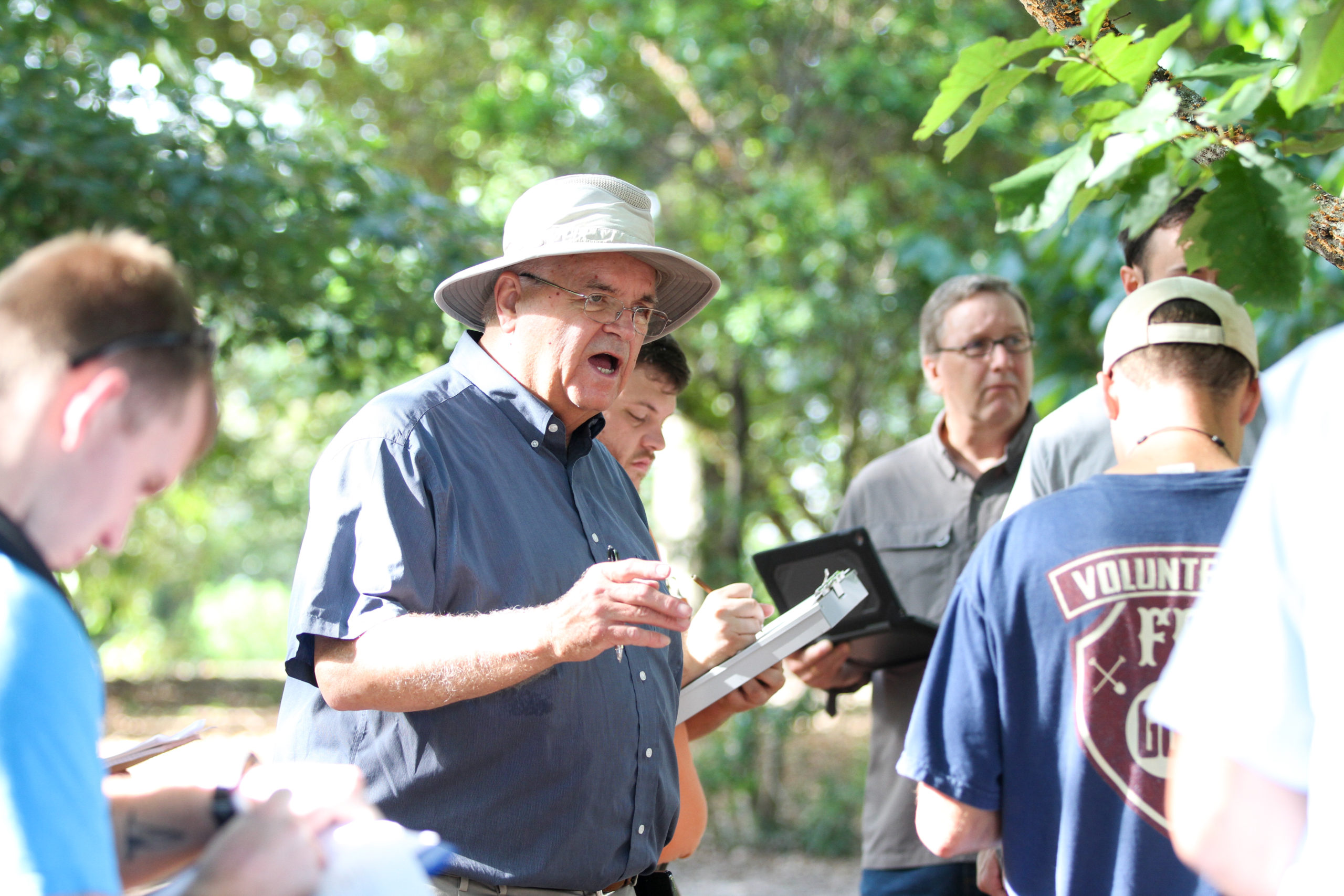
Ask almost anyone in today’s southeastern (and beyond) horticulture industry who was his or her biggest influence and you’ll likely hear the name Harry Ponder. This icon of Auburn University’s horticulture teaching program began his career by helping load-out plants at his family’s third-generation nursery business — Ponder’s Nursery in Dadeville, Ala. He went on to earn bachelor’s and master’s degrees in horticulture from Auburn and a Ph.D. from Michigan State, then spent three years teaching at the University of Georgia before returning to Auburn as a professor in 1978.
Revered for his knowledge of plants and their uses, Ponder is also legendary for knowing and remembering the names of every student in his classes (that’s been more than 2,000 students through the years) and for nurturing them throughout their careers. Though Ponder retired from Auburn in December 2017 after nearly 40 years of teaching, he’s still cultivating new generations of horticulturists there on a part-time basis. – Katie Jackson
What was it like growing up in the nursery business?
It was very interesting because we grew plants to sell both wholesale and retail. On the wholesale side, we sold plants to places like Russell Manufacturing and Auburn University. Little did I know when I was a young person loading trucks destined for Auburn that I would one day be teaching there. Another twist is that a lot of the retail customers whose cars I loaded were professors at Auburn who later became my colleagues.
What part of horticulture — plants or people — do you feel is most important?
They go together. I always told every student I taught, you’ve got to like plants and you’ve got to like people. People go with plants. There’s a relationship there, so to maximize your effectiveness you need to get along with both, and I genuinely like both.
How do you remember so much about your students, past and present?
One thing is that I am blessed with is a good memory, but when I came to Auburn, I wanted to have a real connection with my students. I always heard that people don’t care how much you know unless they know how much you care. I also read once that the sweetest word anyone ever hears is their name — once you call them by their name, they feel an affinity — so I decided I would make sure I learned every student’s name in my classes. I also made it a priority to help students after they graduated, and I still see students today that I may have helped change jobs three or four times in their careers. I tell my students, “You are family and, while you may move out into the world, we are still here for you.”
Are there any tricks to help home gardeners educate themselves about plants and their uses?
The best way in my opinion is to observe. You can read books, but if you have looked at the plants, you’ll know them. And anywhere you go there are plants, so by really looking at them and noticing if they are they in the sun or shade, wet or dry, it sticks with you.
How has the horticulture profession changed and where is it going?
I think the future of the horticulture industry is very bright for several reasons.
When I was coming up, people did their own planting or had their own gardener. Now they use professional installers, designers and maintenance companies. People are also more and more aware of their environments, and for a quality environment there is no substitute for plants. Another thing is that horticulture is what I call an “uninterruptable” industry, because gardens are living systems. We can’t quit maintaining them and that job cannot be outsourced to foreign countries. All of that signals a very bright future and continued growth for horticulture. I don’t see it ending and that’s good for our students, too. The job market has increased so much that we don’t have enough students to fulfill the need.
What are your plans in “retirement?”
I won’t be teaching in the classroom, but I have committed to work part-time to help place students in jobs and to run Auburn’s horticulture internship program. I also want to stay involved in the industry’s state and regional meetings. But after 40 years in the classroom, I’m looking forward to having more flexibility so I can spend time with my 1 ½-year-old grandbaby and have time to read and travel with my wife. Now that I say it, I may be wanting to do more than is possible.




